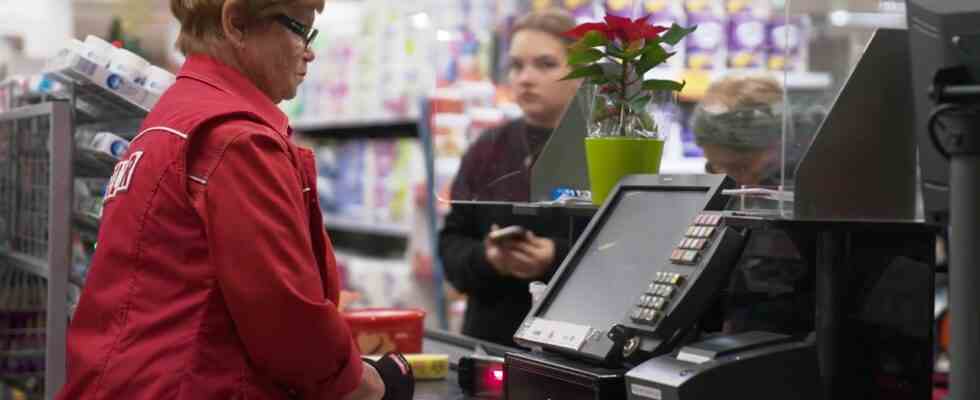Europe Magazine
Status: 11/26/2022 4:02 p.m
Estonia is suffering from record inflation of more than 20 percent. But the attitude of many people in the country is characterized by perseverance – and solidarity with the Ukrainians.
Maarja Tinn’s family doesn’t let the fun be taken away from them. When she prepares the food in the kitchen with her husband Aron and their three children, there is a lot of laughter. Four-year-old Teodor is just allowed to prepare the omelette. The family used to like to order something for lunch. But meanwhile the family coffers have become emptier, says Maarja. They even notice that with the omelette. Because the prices in Estonia have skyrocketed.
Compared to Germany, wages are also significantly lower here. Maarja works part-time at the university in Tallinn. She gets 850 euros a month. Her husband Aron is a freelance photographer. In the fall, he raised his fees a bit to help them make ends meet. “I just watched the money melt away – you work but there’s nothing left.”
The electricity and heating bills in particular eat up the budget. Estonia’s government supports citizens with a few cents per kilowatt hour. But that’s all there is to it. And yet the family remains calm:
It would not be right to rebel against your own government or individual companies now. The problems are complex. But the trigger for this energy crisis is Russia, Putin’s regime, which uses energy as a weapon.
How the Estonians deal with the highest inflation rate in Europe
Christian Blenker, ARD Stockholm, Europamagazin, November 26, 2022
Not everyone can do it on their own
Winter has long since arrived in Estonia’s capital, Tallinn. Dark and cold months lie ahead of the people here. In the supermarket, the range is as varied as ever. But Estonia has to import many of these goods. The increased prices are passed on.
Everyone is feeling the record inflation of over 20 percent. Not everyone manages to do it on their own. The city helps thousands of Ukrainian refugees and at the same time many needy local people. Applications have quadrupled in the last few months.
“We haven’t seen an increase like this since the last economic crisis in 2008,” said Tallinn’s deputy mayor, Betina Beshkina. “The elderly, the pensioners in particular, are affected by poverty. The latest figures show that.”
A contact point for elderly people in need
Those who have to live alone on a measly pension often come to Tallinn’s senior citizens’ self-help association. The house fills up every lunchtime, punctually at 12 p.m., because they can afford a cheap meal here with a few cents. When they do the manual work next door, they often talk about their situation afterwards.
Women like Vaike used to work in a textile factory. Today they have to get by somehow. “I’m always looking for special offers. If I had to pay full price, I wouldn’t be able to cope.” Her friend Siri adds:
I sent hats and scarves to the Ukrainians. We in Estonia know how terrible it is there. This is our war too. But we are more likely to endure inflation here than possible bombs.
Hardly any protests
An attitude shared by many people in Estonia. There are hardly any protests against the government. Although not everyone can count on help. Pensioners got a one-time payment and families get more child benefits.
Everyone else would have to make it, says Signe Riisalo, the responsible social affairs minister from the economically liberal Reform Party. “Estonians are resilient. Even now. The vast majority are just trying to deal with the situation and as a state we are trying to help people.”
“You have to be empathetic”
More child benefit also helps Maarja Tinn’s family a bit. But they can only provide real relief if they turn down their heating in winter.
You just put on a wool sweater and wool socks. We will make it. You have to be empathetic – when we think about the life of the people in Ukraine, it is not worth mentioning that it is 19 degrees at home.
With their perseverance, they may have already made it through the toughest phase. Forecasts are optimistic: inflation is expected to slow down in the coming months.
You can see this and other reports in Europamagazin – on Sunday at 12.45 p.m. in the first.

